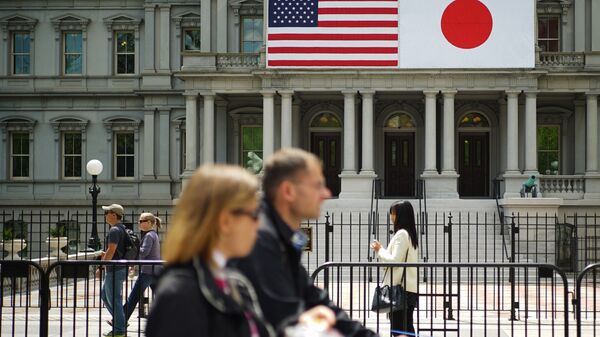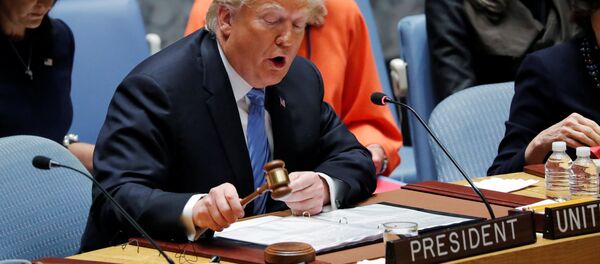"Both Japanese and US governments are planning to hold further discussions based on trust relationship, and it has been confirmed that no actions which contradict the spirit of this agreement will take place. [The United States] will not impose [additional] tariffs on [Japanese-made] automobiles while negotiations are taking place, it has been confirmed between the two leaders and ministers," Japan's Chief Cabinet Secretary, Yoshihide Suga, told a briefing.
The official noted that the agreement between the two leaders was only the beginning, as proper trade negotiations would be launched later.
READ MORE: Bank of Japan to Review Risks of ‘Easy Money' Policies Amid US Trade Talks
According to Suga, the talks "will not be easy", however, Japan was willing "to proceed with these negotiations in a manner that will contribute to the national interests from the standpoint of attacking" what Japan should attack and protect what it should protect.
In addition, Yoshimitsu Kobayashi, the chairman of the Japan Association of Corporate Executives (Keizai Doyukai), said in a statement on Thursday that the Japanese government should step up efforts aimed at increasing the competitiveness of domestic industries as Tokyo and Washington agree to enter bilateral trade negotiations.
"The moment of truth has yet to come. While seeking an agreement that meets interests of both countries on the issue of market access, Japan should step up enhancement of the competitiveness of domestic industries such as agriculture and take all precautions," Kobayashi said.
The organization also praised the joint statement issued by US President Donald Trump and Japanese Prime Minister Shinzo Abe, noting that it was "a constructive outcome which helps to avoid immediate friction."
Earlier this month, Trump told reporters that the Japanese would not negotiate with the Obama administration because "they felt there was going to be no retribution." The US president also said that Tokyo will have a "big problem" if they fail to reach a trade accord with the United States.
During 2018, US and Japanese trade officials have held a series of ministerial consultations to explore ways to close the gap on their positions in the bilateral trade relationship while expanding areas of cooperation.



